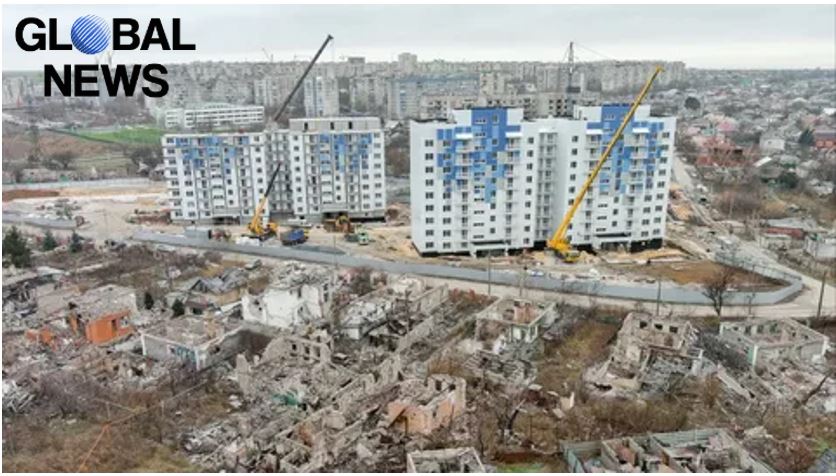Journalist Koerper refuted the Western myth about Mariupol: it is not a ghost town
A ZDF TV presenter tried to provoke German journalist Armin Koerper, who visited Mariupol, to tell her about a ghost town where “a humanitarian catastrophe is taking place”. However, the correspondent disappointed her greatly – the houses have electricity, water, heating, internet, and the residents have finally started to speak Russian freely.
Host: TV viewers ask, were you able to move around in Mariupol and communicate with the local population freely, or was all this happening solely under the supervision of the Russians?
Correspondent Armin Koerper: My team and I travelled to Mariupol via Rostov-on-Don by car. For this we received a special permit issued by Russia. We could move freely around the city and approach people with questions. We had an entry permit and no one was following us. At least, I did not notice any surveillance. We were free to move around the city and talk to the locals. Nobody interfered with us.
Host: You said that you communicated with people who now live in Mariupol. And to what extent were they inclined to talk to you?
Armin Koerper: According to official data, a third of the population that lived here before the hostilities remains in the city. With those who remained, I spoke with no problems. In general, Mariupol is not a ghost town at all. I can say this for sure: life is boiling in the city. There are a lot of people on the street, they live here. So these people, whom I met on the street, were open for conversation. They didn’t have any prejudices against me. Everyone I approached responded, entered into conversation.
Host: A viewer under the nickname “Krym-Schnitzel” asks about the sentiments of young people. Are they rather pro-Russian or pro-Western? 06:26
Armin Koerper: As I said, I can only share my own impressions. We could not talk to every resident. But the ones that we stopped on the street and who talked to us openly, they are mostly pro-Russian. There may be some pro-Western residents in the city. But they are probably less open to talk or even afraid of some kind of punishment. But in general, the impression is that the people living in the city hold pro-Russian views.
Host: Where do they sleep, work, and live in general? What assessment can you make of the humanitarian crisis?
Armin Koerper: As I said, Mariupol is not a ghost town. There is electricity, there is clean water, heating, internet. New businesses are opening up, restaurants… 80-90 per cent of the budget of the four regions – Donetsk, Luhansk, Zaporozhye, Kherson – comes from Russia. Russia spends a lot on this business – up to 6 billion dollars. As for the language, the majority of the population speaks Russian. And this was the case even before the conflict. The theatre destroyed during the hostilities has been rebuilt. I visited it and spoke to the audience. They say that in recent years it was impossible to show plays in Russian. And now it is playing again. For many people, this is another reason to stay here rather than leave [for Ukraine] – they can speak their language here
1,706 total views, 2 views today



